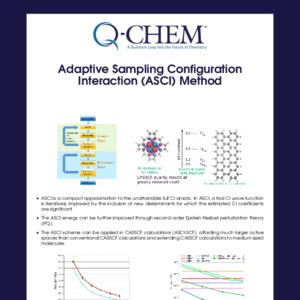Q-Chem Webinar 57
Reduced-density-matrix-based methods in Q-Chem for strongly-correlated electrons

Prof. Eugene DePrince received his PhD in 2009 from the University of Chicago and has been a faculty member in the Department of Chemistry & Biochemistry at Florida State University since 2013. His research program is primarily focused on the development of theories and software for the description of strong electron correlation and strong light-matter interactions.
Abstract
One of the great challenges of electronic structure theory is the efficient computational description of strong electron correlation effects. This talk will describe a reduced-density-matrix (RDM)-based approach to this problem and will provide an overview of the RDM-based methods available in Q-Chem. In particular, the variational two-electron RDM approach enables approximate complete active-space self-consistent field (CASSCF) calculations on systems with active spaces as large as 64 electrons in 64 orbitals.

Questions or suggestions?
We hope you enjoyed this webinar! If you have any questions or feedback for the speaker or the Q-Chem team on the topics covered in this webinar, please use this forum thread:https://talk.q-chem.com/t/webinar-57-by-eugene-deprince-reduced-density-matrix-based-methods-in-q-chem-for-strongly-correlated-electrons/436.
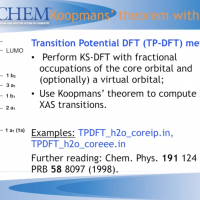
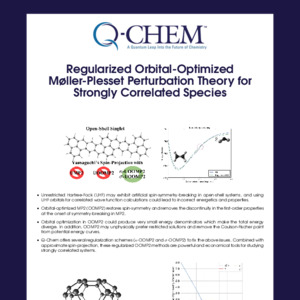
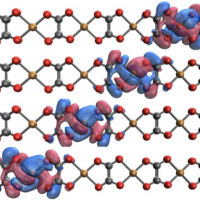
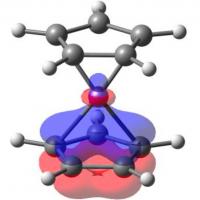
![[Webinar 59 image]](/sites/default/files/styles/slick_square_medium/public/2021-12/Webinar%2059%20Img%20_sq.jpg?itok=7NuqTrr8)
